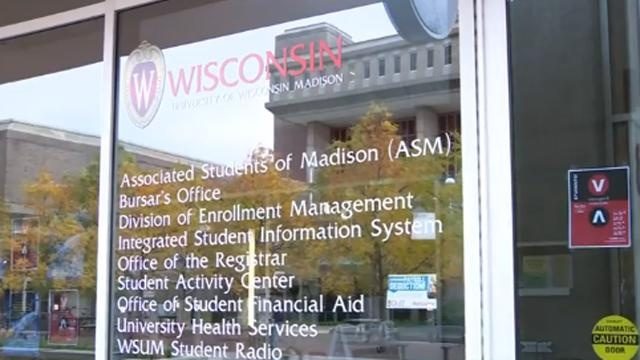A Madison man told News 3 that his sister, a UW-Madison freshman, has the third possible case of meningitis on campus this month.
University Health Services confirmed Thursday that preliminary testing has identified the third possible case, and public health officials are notifying those who have been in close contact with the student “so appropriate preventive care can be provided.”
Hector Jimenez said his sister started to have symptoms around 7 p.m. on Tuesday. She went to Meriter hospital around 2 a.m. on Wednesday and had a blood test and spinal tap. Jimenez said the test came back negative and his sister was sent home. Her symptoms continued to worsen and she went back to Meriter on Wednesday at 2 p.m.
Jimenez said a University Health Services doctor called Wednesday and said he was “99 percent sure” that his sister had meningitis. The student is currently receiving treatment in the Meriter Hospital intensive care unit.
The student lives in the Smith residence hall on the UW-Madison campus.
Two other cases of meningococcal disease serogroup B were confirmed in UW-Madison students earlier this month. Since then, UHS has been working to provide a new vaccine to students. The vaccine takes two weeks to create immunity and a second dose is required.
UHS is urging all UW-Madison undergraduate students through age 25 to get vaccinated against meningococcal disease serogroup B. The vaccine will be offered to students Thursday at the Southeast Recreational Facility, or SERF, 715 W. Dayton St., 10 a.m. to 5 p.m. Additional clinics will be offered there Monday from 10 a.m. to 5 p.m. and Wednesday from 12 to 8 p.m.
The university said that graduate and professional students, students older than 25, staff members, apartment residents, visitors and faculty are not considered at increased risk for meningococcal disease.
As of Thursday, more than 12,000 students, had received first doses of the vaccine, according to a news release. Meningococcal disease most often causes meningitis, an inflammation of the lining surrounding the brain and spinal cord. It’s rare, often comes on suddenly, and can progress rapidly.




























